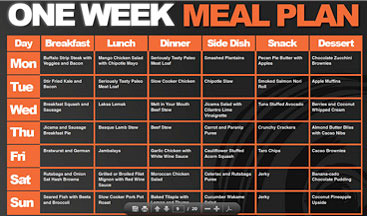
The Bodybuilding Diet and Nutrition Plan: Fueling Muscle Growth and Strength
Bodybuilding, at its core, is a demanding sport that requires a meticulous approach to training and, perhaps even more critically, nutrition. While grueling workouts sculpt the physique, it’s the diet that provides the building blocks for muscle growth, recovery, and overall performance. This article delves into the intricacies of a bodybuilding diet and nutrition plan, offering a comprehensive guide to fueling your gains and achieving your physique goals.
Understanding Macronutrient Needs:
The foundation of any successful bodybuilding diet rests on a proper understanding and balance of macronutrients: proteins, carbohydrates, and fats. Each plays a crucial role in supporting muscle growth, energy production, and overall health.
-
Protein: The undisputed king of bodybuilding nutrition, protein is the primary building block of muscle tissue. It’s essential for muscle repair and growth after intense training sessions. Aim for a high protein intake, generally ranging from 1.6 to 2.2 grams of protein per kilogram of body weight (0.73 to 1 gram per pound). Excellent sources include lean meats (chicken breast, turkey, fish), eggs, dairy products (Greek yogurt, cottage cheese), and plant-based options like lentils, beans, and tofu.
-
Carbohydrates: Often misunderstood, carbohydrates are the body’s primary energy source. They provide the fuel needed for intense workouts and replenish glycogen stores, which are crucial for muscle recovery and preventing muscle breakdown (catabolism). Choose complex carbohydrates like brown rice, quinoa, oats, sweet potatoes, and whole-grain bread over simple sugars found in processed foods and sugary drinks. Carbohydrate intake should be adjusted based on training intensity and goals, generally higher on training days and lower on rest days.
-
Fats: Fats are essential for hormone production, nutrient absorption, and overall health. They also contribute to satiety, helping you feel full and satisfied between meals. Prioritize healthy fats like avocados, nuts, seeds, olive oil, and fatty fish (salmon, tuna). Limit unhealthy saturated and trans fats found in processed foods and fried items.
Designing Your Bodybuilding Meal Plan:
A well-structured meal plan is crucial for maximizing muscle growth and minimizing fat gain. Consider the following principles:
-
Meal Frequency: Most bodybuilders opt for 5-7 smaller meals spread throughout the day, rather than 2-3 large meals. This approach maintains consistent blood sugar levels, provides a steady supply of nutrients to muscles, and minimizes catabolism.
-
Timing Your Meals: Pre-workout meals should focus on easily digestible carbohydrates for energy, while post-workout meals should prioritize protein and carbohydrates to promote muscle protein synthesis and glycogen replenishment. Consuming a protein source before bed can also help prevent muscle breakdown overnight.
-
Caloric Surplus: To build muscle, you need to consume more calories than your body burns. This caloric surplus provides the extra energy needed for muscle growth. However, it’s essential to manage this surplus carefully to minimize fat gain. Track your calories and adjust your intake as needed based on your progress.
-
Hydration: Water is crucial for numerous bodily functions, including nutrient transport, temperature regulation, and muscle function. Aim to drink plenty of water throughout the day, especially before, during, and after workouts.
Sample Bodybuilding Meal Plan (Adjust portions based on individual needs):
Meal 1 (Breakfast): Oatmeal with protein powder, berries, and nuts.
Meal 2 (Mid-morning): Greek yogurt with fruit and a handful of almonds.
Meal 3 (Lunch): Chicken breast salad with brown rice and mixed vegetables.
Meal 4 (Pre-workout): Banana with a small amount of peanut butter.
Meal 5 (Post-workout): Protein shake with whey protein and carbohydrates (like dextrose or maltodextrin).
Meal 6 (Dinner): Lean ground beef with sweet potato and broccoli.
Meal 7 (Before Bed): Casein protein shake.
Supplement Considerations:
While a well-planned diet should provide most of the necessary nutrients, some supplements can be beneficial for bodybuilders:
-
Creatine: Creatine monohydrate is a well-researched supplement that can improve strength, power, and muscle growth.
-
Whey Protein: A convenient and efficient way to increase protein intake, especially after workouts.
-
BCAAs (Branched-Chain Amino Acids): BCAAs can reduce muscle soreness and may improve recovery.
-
Glutamine: Supports immune function and gut health, which can be compromised during intense training.
Important Considerations:
-
Individual Needs: This is a general guideline. Individual needs vary based on factors like age, sex, training intensity, and body composition. Consult with a registered dietitian or sports nutritionist to create a personalized plan.
-
Progressive Overload: As you gain strength and muscle mass, you’ll need to progressively increase your calorie and macronutrient intake to continue making progress.
-
Consistency: Consistency is key. Sticking to your diet plan consistently is more important than occasional deviations.
-
Listen to Your Body: Pay attention to how your body responds to your diet. Adjust your plan as needed based on your energy levels, performance, and body composition changes.
-
Prioritize Whole Foods: Focus on whole, unprocessed foods as much as possible. Minimize processed foods, sugary drinks, and unhealthy fats.
Conclusion:
A bodybuilding diet and nutrition plan is far more than just consuming enough calories; it’s about optimizing nutrient timing, macronutrient ratios, and overall food quality to fuel muscle growth, recovery, and overall performance. By understanding the principles outlined in this article and working with a qualified professional, you can develop a plan that supports your bodybuilding goals and helps you achieve your desired physique. Remember that consistency, patience, and a holistic approach encompassing both diet and training are crucial for long-term success.



